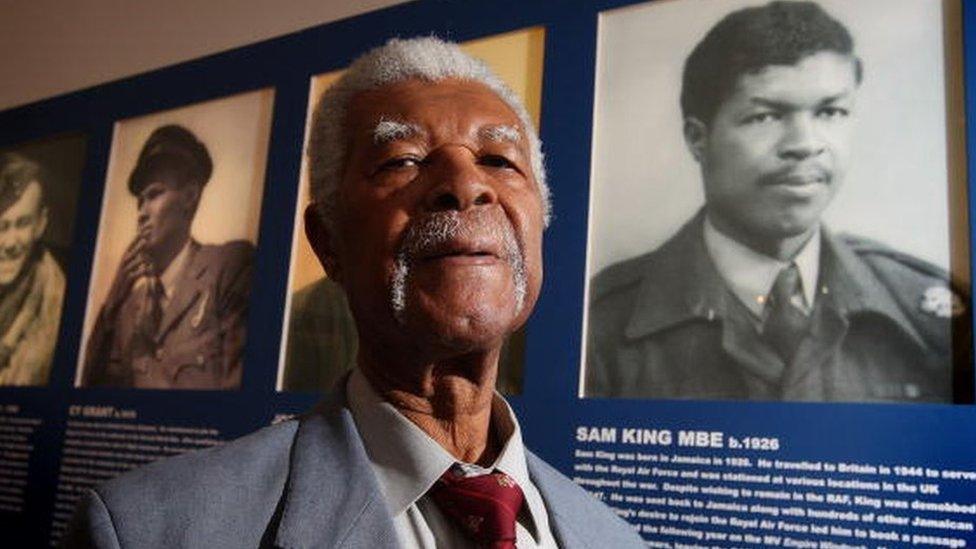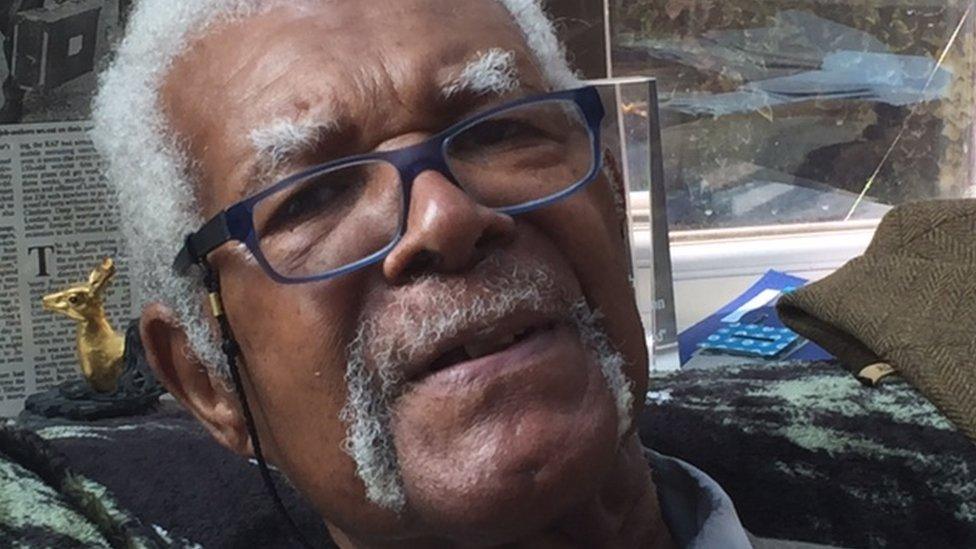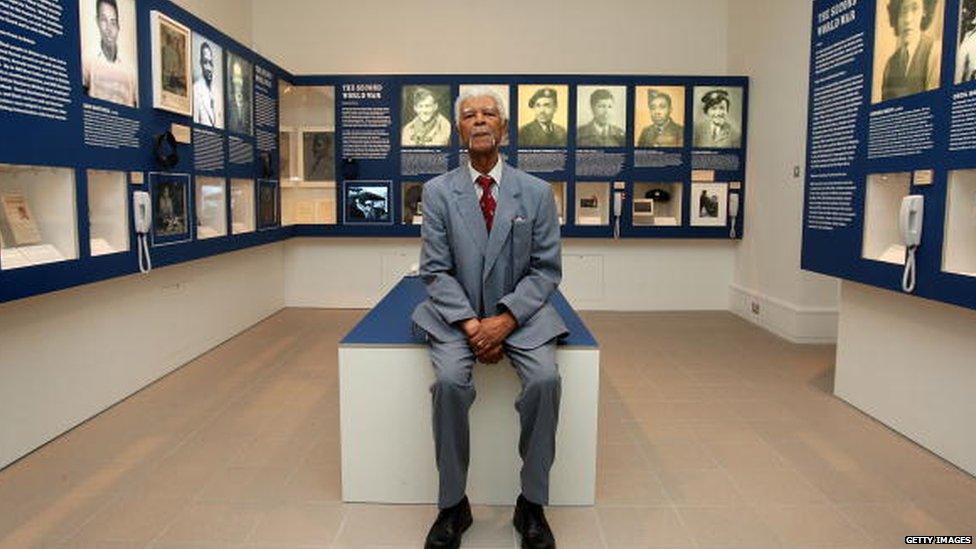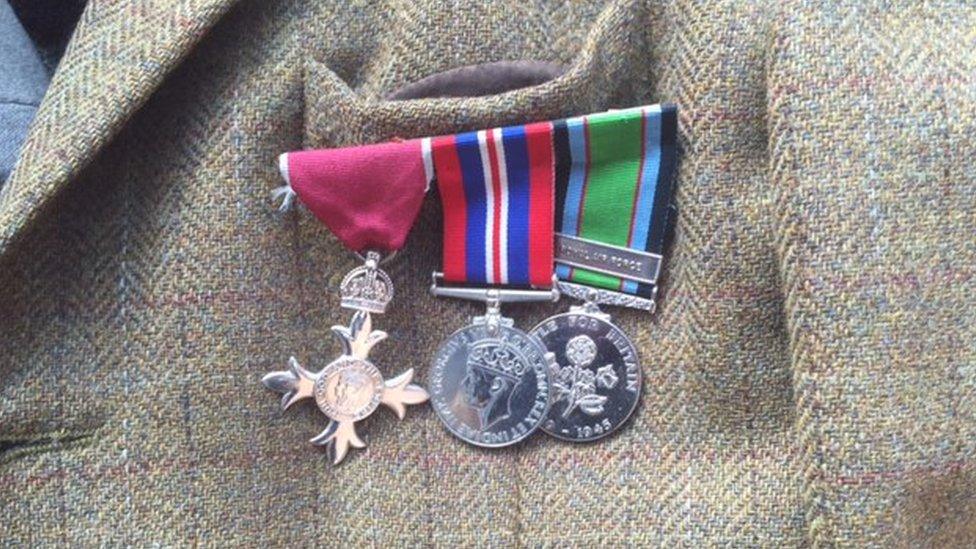Black soldiers' role in World War Two 'should be taught in schools'
- Published

An 89-year-old war veteran says younger generations need to know that black people fought for Britain in both world wars.
Sam King volunteered for the Royal Air Force from Jamaica in 1944 during World War Two along with many others from Caribbean islands.
But, he says young people aren't being taught enough about their involvement in schools.
"They should realise that we came here to contribute," he says.
Up to 10,000 men and women volunteered to come to the UK from West Indian islands like Barbados, Antigua and Jamaica to defend the British Empire in World War Two, causing mass migration to the country.
Sam King was one of them. He signed up to the Royal Air Force as an engineer after spotting an advert in his local paper.
"Britain alone could not beat Germany," he said. "I was 18 and they asked for men so we volunteered, and by the grace of god we won.
"I left Portland, Jamaica, in temperatures of 75F (23C). I landed at Greenock, which was 39F (-4C). I thought I was going to die.
"You had to wrap yourself up and keep warm as much as possible," he says.

Even though he was not from the UK, Sam understood the importance of countries joining forces to defeat Adolf Hitler's regime and says it was an honour.
"I was privileged working with people from Norway to the Sudan. We all had to work together to beat Nazi Germany," he says.
"The Germans were doing a few bad things. They murdered people like pigeons."

Like many West Indian servicemen who survived the war, Mr King was given the chance to return to Jamaica, but instead decided to remain in Britain.
Despite helping to rebuild Britain, Sam feels the contributions of thousands of men and women from Caribbean colonies during World War Two have been largely forgotten.
"When we were in the uniform you're reasonably respected. When the war was over they said, 'What are you doing here? You should go home.'
"I came to help them and now that they have their freedom they said I should go home."

Sam King was awarded an MBE by the Queen
Sam will be celebrating Armistice Day with some of his veteran friends in Clapham, south London, where - like at many events across the country - a two-minute silence will be observed.
The silence is held at 11:00 GMT to mark the 11th hour of the 11th month - the time in 1918 when the guns finally fell silent along the western front and an armistice was declared.
Sam thinks that the contribution of black people in both world wars should become a part of the National Curriculum and be taught in schools.
"The nation should remember that nearly 1,500 West Indians volunteered and fought in the war too.
"Young people don't know about [black people's contributions] because they don't tell them in schools, and they should.
"They should realise that we came here and contributed - from the House Of Lords to local authorities to sweeping the streets, we are a part of the fabric."
But in the meantime, Sam has his war, air force and MBE medals to commemorate his time serving in the RAF - which is he very proud of.
"When I sign my name I can sign it Sam King MBE, Member of the British Empire."
For more stories like this one you can now download the BBC Newsbeat app straight to your device. For iPhone go here, external. For Android go here, external.